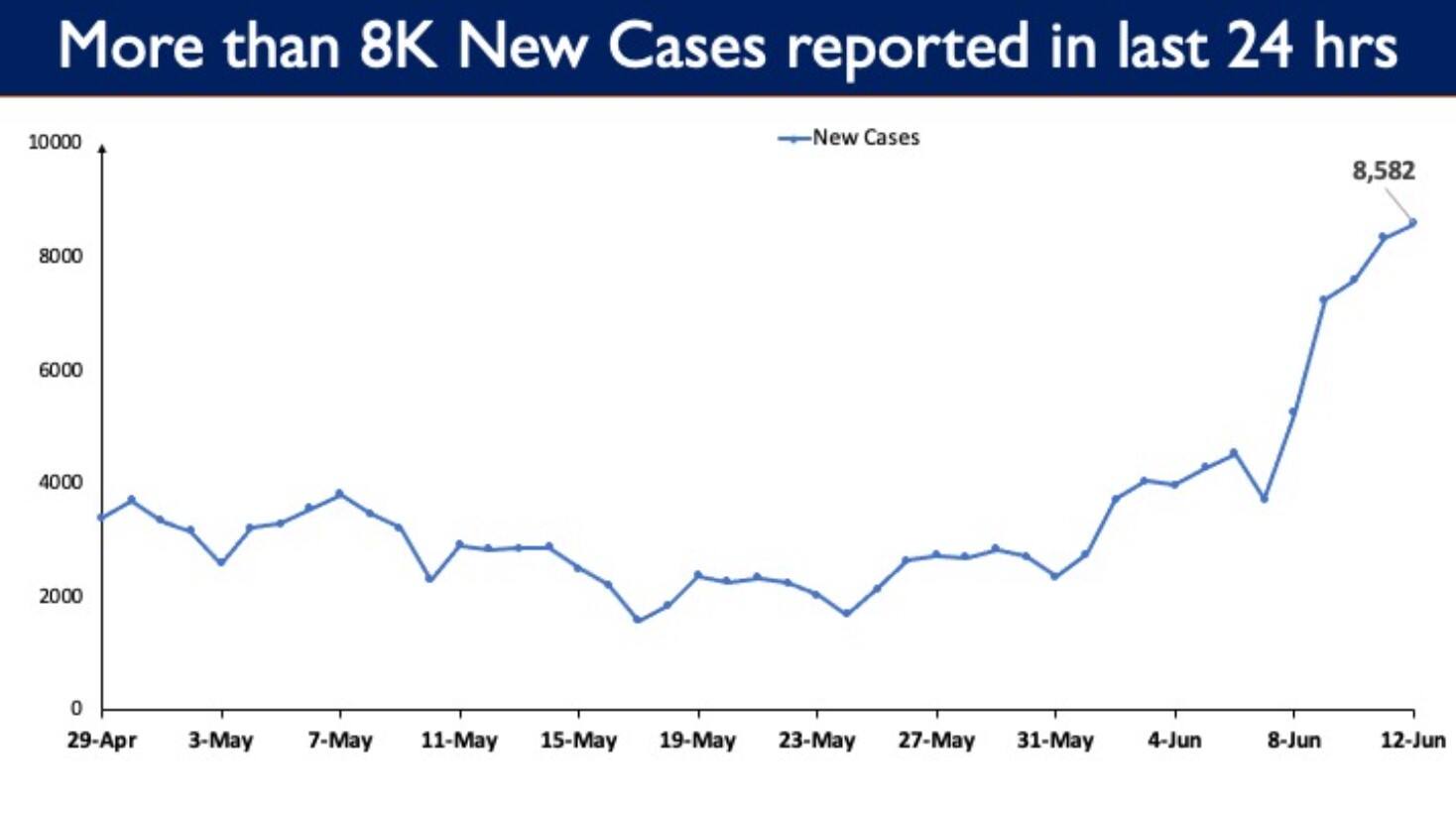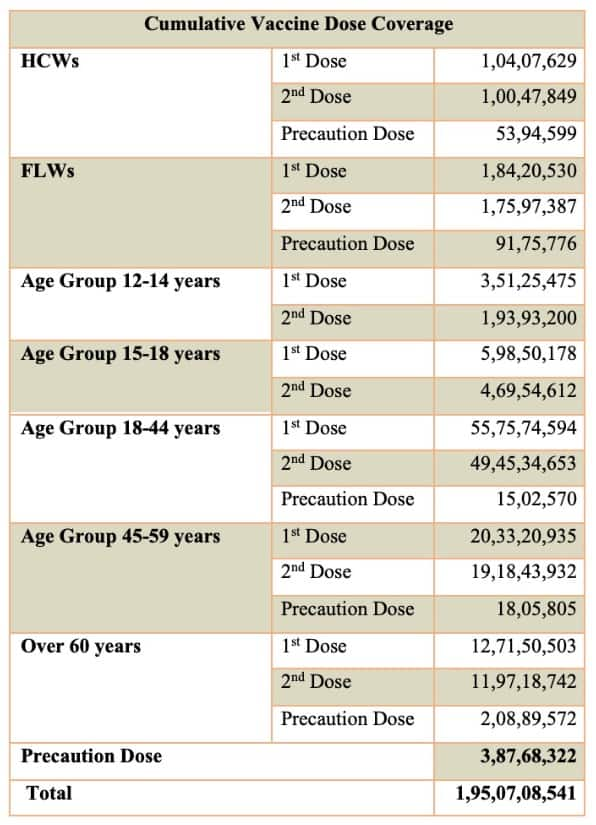New Delhi: Amid the fear of a fourth wave in the country, India’s daily Covid-19 tally on Sunday (June 12, 2022) crossed the 8,000-mark for the second day in a row. According to the Union Health Ministry, India recorded 8,582 new coronavirus infections between Saturday and Sunday, and The country’s active caseload now rises to 44,513. It is done, The Covid-19 active caseload registered an increase of 4,143 cases in a span of 24 hours.
The daily positivity rate was recorded at 2.71 per cent, while the weekly positivity rate was 2.02 per cent, updated at 8 am.
The Health Ministry said that the death toll rose to 5,24,761 with the death of four people.
Which states are seeing a rise in COVID-19 cases?
Seventeen districts in India, including seven in Kerala and five in Mizoram, are reportedly witnessing weekly Covid-19 positivity rates of over 10 per cent, while 24 districts, including seven in Kerala and four in Maharashtra and Mizoram- Four are included. The weekly positivity rate is between five and 10 percent,

The top 10 states and union territories in terms of increasing positivity rate are Kerala, Mizoram, Goa, Maharashtra, Delhi, Haryana, Sikkim, Chandigarh, Karnataka and Himachal Pradesh.
There are around 1,000 active coronavirus cases in six states and union territories – Kerala, Maharashtra, Karnataka, Delhi, Haryana and Tamil Nadu.
Rise in Covid-19 cases should not be a reason for panic
The rise in the number of Covid-19 cases in the country in the past few days should not be a cause for panic, health experts said on Saturday, adding that no fresh form of concern has been found and the growth so far has been limited in some districts. He also pointed to non-compliance with COVID-appropriate behavior and people’s indifference about receiving booster doses, potentially increasing the pool of population susceptible to infection.
“First of all, we have not found any new forms of concern. India now has BA.4 and BA.5 in addition to BA.2, which have slightly higher transmission potentials than other Omicron sub-lineages,” said Dr. NK Arora, chairman of the National Technical Advisory Group on Immunization (NTAGI), told news agency PTI.
Read also | China warns of ‘explosive’ Covid-19 outbreak, all new cases linked at once in Beijing
In addition, summer vacations have led to increased mobility, easing of travel restrictions nationally and internationally, and a complete opening of economic activities, leading to the spread of infection among vulnerable individuals.
“There is another dimension to this and that is that infection is limited to metros and large cities with high population densities. The important thing is that most of the people who get infected these days are vaccinated and have a common cold and a mild influenza. Like a disease
“No need to panic, but one must remember that COVID is very much around us and we need to follow COVID-appropriate behavior and in particular, avoid crowded places and wear masks in our daily routine. Needs to be made an integral part of life.” Dr. Arora said.
Fewer hospitalizations, deaths due to Kovid-19
AIIMS Director Dr Randeep Guleria said that though there has been an increase in the number of cases, there has been no increase in hospitalizations or deaths. In addition, growth is limited to certain geographic areas.
“So the increase in the number of cases is not a cause for concern at the moment. But we should not let our guard down and focus on aggressive testing so as not to miss any emerging variant.
Guleria said, “Also, there has also been complacency among people to follow COVID-appropriate behaviour. Also, some people who are due to the precautionary dosage, are not taking it, which could potentially lead to a pool of susceptible population.” has increased.”
Complete vaccination including precautionary doses required
Studies conducted by the Indian Council of Medical Research (ICMR) and other international research institutions have suggested that antibody levels decrease approximately six months after primary immunization with both doses and that giving boosters enhances the immune response.
Dr. Nivedita Gupta, Head of Epidemiology and Communications, said, “We need to remember that COVID-19 is not over yet and there is a need to ensure complete immunization of all individuals, including the precautionary dose. Vaccination for severe infections, in hospital Prevents recruitment and death.” The diseases department at ICMR said.
“So far the increase has been limited to a few districts and is localised, but it is important to ensure proper containment efforts, restrictions, social distancing and COVID-appropriate behavior in those areas to control the spread of infection. There will be a robust set of local data. creation, which needs to be further examined for taking appropriate decisions at the local level,” he added.
It is noteworthy that the total dose administered so far in the country has exceeded 195.07 crore on Sunday.
(with agency input)
